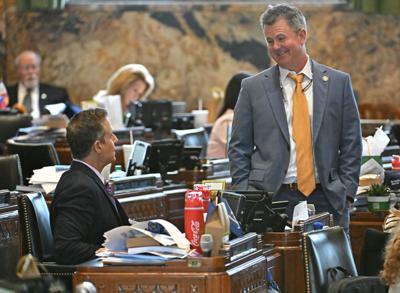This legislative session, bills that would give the public much less insight about the inner workings of government and whom our public officials are beholden to are moving forward with little resistance from lawmakers on either side of the aisle.
One piece of legislation all Louisiana citizens who care about good government should be watching is House Bill 674, by Rep. Beau Beaullieu, R-New Iberia, which proposes to make a slew of changes to the state ethics code that covers all public employees from teachers to lawmakers. The bill would add cumbersome layers to the procedures of the Louisiana Board of Ethics, requiring a two-thirds vote before an investigation could be launched and setting limits on the board’s ability to gather information through subpoenas and sworn testimony.
Right now, the board is required by law to investigate any complaint it receives. Apparently, lawmakers think that too many of those complaints are being aired and that the board is harassing public officials.
There's more packed into this bill — from changes to when officials can accept privately paid travel to what amount they can accept in gifts — so one would expect it to have sparked spirited debate on the House floor. Yet not a single Republican or Democrat raised any questions. The bill passed the House unanimously on May 5 and is now before the Senate Governmental Affairs committee.
We also note that this bill comes a year after a law passed giving Gov. Jeff Landry and legislators sweeping control over who is on the board, even as the governor himself faces ethics charges over private plane trips paid for by a donor.
Government watchdog groups worry that if this bill passes, future ethics investigations could be shut down before they even get off the ground.
Steven Procopio, president of the nonpartisan Public Affairs Research Council, said, “I think it tips a little too far in terms of protecting elected officials from investigations.”
Another concerning bill making its way through the Legislature is one that would allow the identities of those who finance campaigns involving ballot measures to be kept secret. House Bill 596 by Rep. Mark Wright, R-Covington, would make numerous changes to campaign finance laws, including eliminating the requirement that money spent to promote or defeat tax propositions or other elections that don't involve candidates be disclosed.
The state seems to go through cycles where rampant corruption gives way to good government reforms prompted by public outcry. Then politicians, weary of the constraints placed upon them, push to weaken ethics rules, hoping the public will have forgotten why they were needed in the first place.
As a newspaper, we will always defend the public's right to know. But everyone must speak up if we want to break this cycle. We must let our leaders know we want to keep strong safeguards that ensure our state is a model of openness and good governance.

